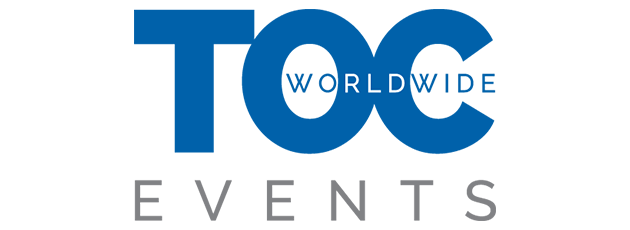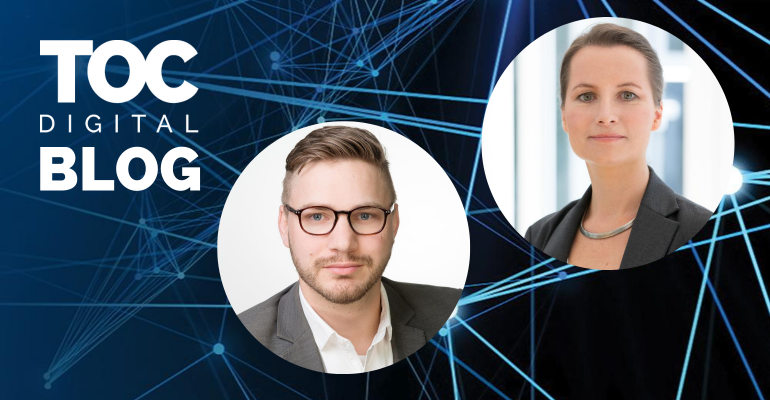In keeping with the style of our #MiMini series in which we’ve interviewed the moderator and all of the panelists taking part in the upcoming Millennials in Maritime (MiM) session in partnership with TOC Digital, I sat down with Dr. Eva Savelsberg, SVP of Logistics at INFORM, to understand why INFORM is investing in bringing younger voices into the forefront of our industry.
MW: INFORM’s got many initiatives around the industry. What it’s like to work in the industry and promoting some of the lesser-heard voices? Before you answer, wait just a bit, and we’ll come to that. Let’s start with a bit about you, Eva. What attracted you to the maritime industry?
ES: It wasn’t a very conscious choice. It was more a path I took of just going to the next interesting step. I didn’t start out with maritime. I started out in mechanical engineering. Actually, when I was a kid at school, I wanted to become a member of Greenpeace. They said that they want to have people with specific competencies. I thought mechanical engineering would be a good competency and might be usable. So, I dived into it and studied it. After that, I did my Ph.D. on, let’s say, a triangle of logistics, software, and mechanical engineering. And the path just took me further into the port terminal industry.
MW: You’re a self-proclaimed lover of all things “container terminals.” If you’ve taken steps to get there, what was the moment when you realized you genuinely loved the industry?
ES: Pretty early on during my work for INFORM, I was part of the CTB project in Hamburg. It was so amazing to have, let’s say, the challenge and the ability to automate the equipment to orchestrate this ballet, this dance of equipment, on the terminal. I thought that was really fascinating, and it was a challenging project. I always thought when I retire in the future, I will take a camping chair and just sit down and look at this fabulous terminal with all this huge equipment running around. I think it was pure fascination, and I loved it.
MW: INFORM is currently a voice for Millennials through our Millennial and Maritime series, which we brought to the industry last year in 2019 and are bringing again this year. Why have you elected to give young people a voice in the industry?
ES: From my perspective, it’s more also about diversity, and diversity has the goal to integrate thought diversity – to not just look at the world from one angle. If you take Germany as an example, I think it’s 1.1% of the world population. If you reduce it to only counting adult, male employees, it’s probably, I don’t know, let’s say 0.3% of the world population. This makes for a very narrow frame of reference. To be able to tackle the challenges of the future and also to reflect your customers’ needs, you have to have diversity. This is the only sustainable way.
Therefore, it’s quite natural to integrate the younger generation because they also have a different point of view. They have a different educational experience from the education we had. They are more technology versatile. I think it’s a no-brainer to give them a voice and to hear what they have to bring to the table. It’s important that we learn how they want to have their future shaped and how they can help us all have a better vision of the future. Actually, in all honesty, it’s their future, and we “Boomers” are more the bridge to this future, their future.
Thinking about this Millennial topic always brings a smile to my face. I think it’s important, but I think we have to look further to the next generations too. I just read that the generation after the Millennials is called the “Linksters” – the first generation to be linked to technology from day one.
MW: Some might also know them as “Generation Z.”
ES: Right. Because as an industry, we need this next generation too. We have to be attractive to them also. Millennials are either in the industry, or they might have experience in other industries. They are at the right point for us to attract and integrate them. But, we need to learn our lesson about being attractive to younger generations and start focusing on how to bring in the Linksters in too, and it’s difficult to tell them, “Okay, watching YouTube or being a professional video-gamer might be far more exciting, but the container industry is really interesting too.” That said, ports and terminals are not in themselves that interesting for this younger generation. It needs some fancy coloring and some things to attract the younger generation.
The industry is very diverse, and it needs for good people. It has so many topics that it covers. It’s a really, really interesting field to work in because you have an almost unlimited number of possibilities within this field. To bring this to the younger generations, and to tell the story so that they know about it is very important.
MW: I want to approach that question from a different perspective. If encouraging diversity and encouraging alternative perspectives for problem-solving is a good thing, how is it that, as an industry, can we position ourselves to be more attractive to younger workers?
ES: We have to tell the story. We have to market the possibilities within the industry. When kids ask themselves, “What do I want to do?” they have to know about the industry and the paths to enter. They have to see role models going this way because then you can imagine taking this path yourself, which might take you somewhere different, but it’s part of your reality, or it can become part of your reality.
I believe initiatives like Millennials in Maritime show the prominence of Millennials in the industry and show other Millennials that the industry is right for them. It will open up the attractiveness of this industry for younger workers for sure. I think a way to enter the industry has to be perceivable for people.
And I think there are also other considerations. One is the effect of having more people of, let’s say, a specific background in the company will somehow open up the company to more people of this kind. I don’t want to reduce the goal of just having more young people, or more females, or more males, or whatever. I also had teams that were suddenly all female, and I was explicitly trying to find some males for those teams because I think it is better to be mixed. Balance is crucial.
MW: In closing, what is the one piece of advice you would love to leave for our industry?
ES: What I’ve experienced in the industry is that one of the most decisive strengths of the industry is the people in the industry. People in the maritime industry tend to be very loyal to the industry. They are fascinating, well-educated, and very eager to bring benefits to the industry and to push ahead. They are always trying to find ways to deal with new challenges. I think that’s an excellent foundation to build on.
Join us for the ‘Millennials in Maritime’ webinar for free and see what the future is thinking
Join this exclusive webinar and hear our expert panel representing Port Technology (The Journalist), DCT Gdansk (The Operator), INFORM (The Supplier), Audenaerdt Project Management (The Moderator) and a special guest panelist (To be announced closer to the date – The Consultant) and grasp the whole millennial picture of the social issues of today and their views of the maritime industry of tomorrow.
WEBINAR STREAMING LIVE: 3 September - 11.00 BST / 12.00 CEST / 18.00 SGT
Copyright © 2024. All rights reserved. Seatrade, a trading name of Informa Markets (UK) Limited.
Add Seatrade Maritime News to your Google News feed.  |


